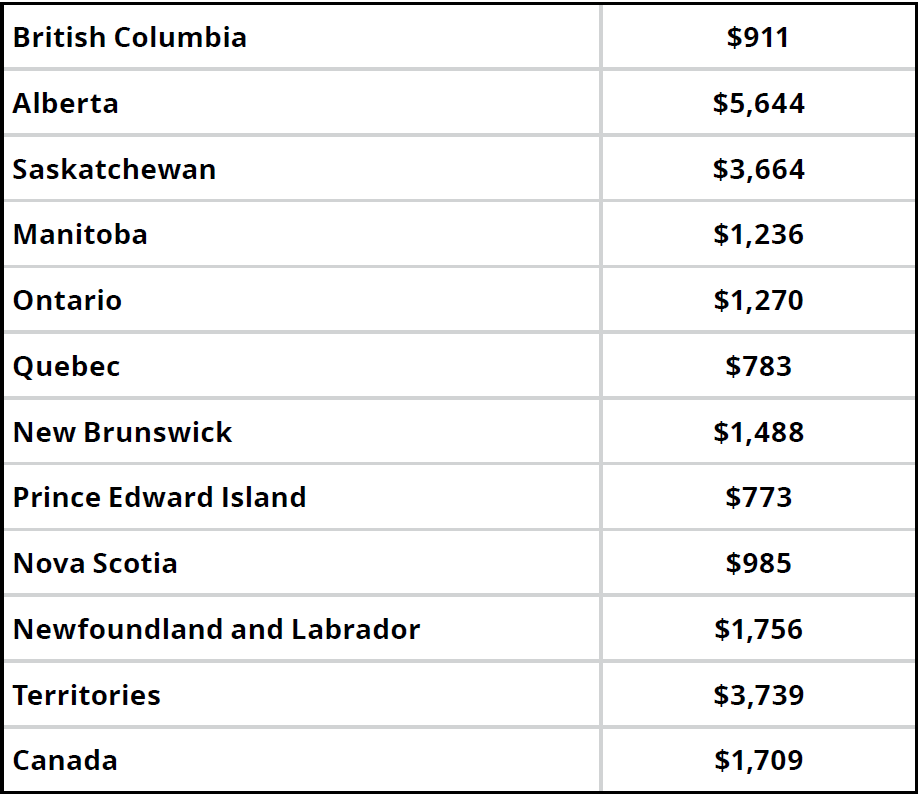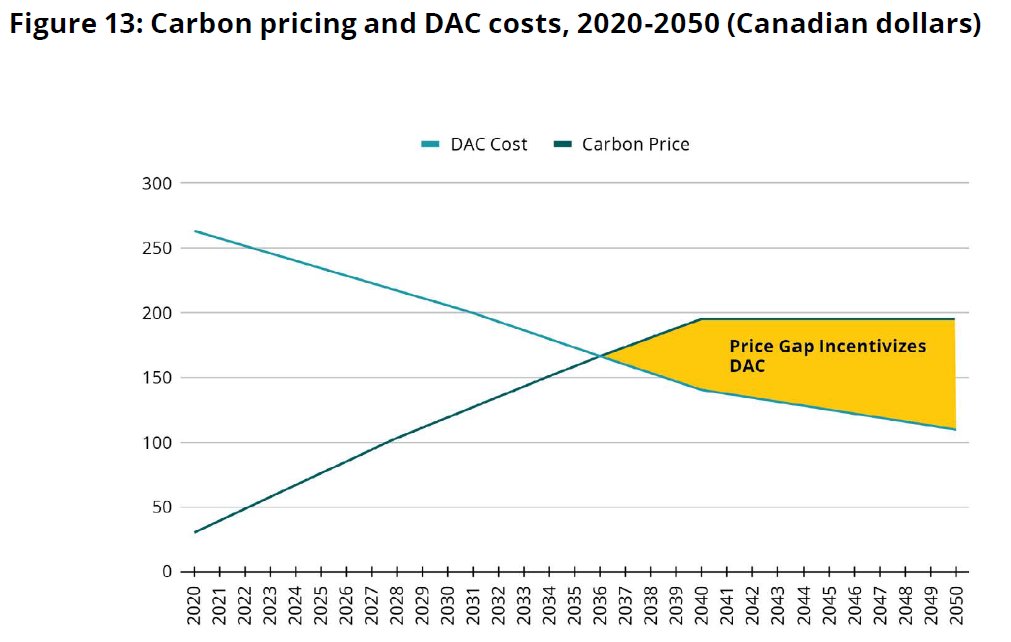The new net-zero bill introed by feds is step in right direction, but what is plan to hit the target? @CleanProsperity has a new report  https://abs.twimg.com/emoji/v2/... draggable="false" alt="👇" title="Rückhand Zeigefinger nach unten" aria-label="Emoji: Rückhand Zeigefinger nach unten"> on meeting Paris & net-zero. 3 key recs: 1) carbon pricing, 2) carbon removal, & 3) complementary
https://abs.twimg.com/emoji/v2/... draggable="false" alt="👇" title="Rückhand Zeigefinger nach unten" aria-label="Emoji: Rückhand Zeigefinger nach unten"> on meeting Paris & net-zero. 3 key recs: 1) carbon pricing, 2) carbon removal, & 3) complementary  https://abs.twimg.com/emoji/v2/... draggable="false" alt="💰" title="Geldsack" aria-label="Emoji: Geldsack"> & regs.
https://abs.twimg.com/emoji/v2/... draggable="false" alt="💰" title="Geldsack" aria-label="Emoji: Geldsack"> & regs.  https://abs.twimg.com/emoji/v2/... draggable="false" alt="🧵" title="Thread" aria-label="Emoji: Thread">(1/) https://www.cleanprosperity.ca/2020/11/24/a-plan-to-reach-net-zero/">https://www.cleanprosperity.ca/2020/11/2...
https://abs.twimg.com/emoji/v2/... draggable="false" alt="🧵" title="Thread" aria-label="Emoji: Thread">(1/) https://www.cleanprosperity.ca/2020/11/24/a-plan-to-reach-net-zero/">https://www.cleanprosperity.ca/2020/11/2...
First, carbon pricing does a lot of heavy lifting. Raising C-price by $10/yr thru 2030 closes 90% of 77 Mt gap to Paris. Switching to full industrial pricing with a border carbon adjustment = 114 MT drop in GHGs, exceeding the 2030 goal (as gov has pledged to do). Or...(2/)
If Canada wanted to raise its ambition, an increase of $15/yr in C-price thru 2030 reduces emissions by 159 Mt, getting close to 45% reduction by 2030 called for by IPCC. All #s based on modelling done w/ @NaviusResearch (3/)
Continuing to raise C-price thru 2040 by $10 = 250 MT drop in GHGs in 2040. That& #39;s half gap to net-zero! (4/)
Pricing also key to unlock the tech needed to decarbonize. e.g. CCS will be critical for industry. Raising c-price above the cost of CCS is key ingredient to getting at-scale adoption via private sector $. (5/)
What about affordability? As C-price rises, so do rebates. By 2030, avg household gets $1200 in ON, $3600 in SK, $5600 in AB! (We also recommend SMEs get tax cuts) (6/)
Second, carbon removal is key to offset hardest emissions (e.g. ag, aviation) AND to bring level of atmospheric carbon down. I love trees, BUT natural sol& #39;ns aren& #39;t the answer here. We need negative emission tech (NETs) that permanently puts C02 underground (7/)
Lots of promising NETs but Direct Air Capture (DAC) is one example. It removes carbon from the air!  https://abs.twimg.com/emoji/v2/... draggable="false" alt="🇨🇦" title="Flagge von Kanada" aria-label="Emoji: Flagge von Kanada"> can be a BIG player here. We have a top global company @CarbonEngineer + the right subsurface conditions in AB & SK. O&G expertise also a huge asset. (8/)
https://abs.twimg.com/emoji/v2/... draggable="false" alt="🇨🇦" title="Flagge von Kanada" aria-label="Emoji: Flagge von Kanada"> can be a BIG player here. We have a top global company @CarbonEngineer + the right subsurface conditions in AB & SK. O&G expertise also a huge asset. (8/)
Costs of DAC could drop below C-price by mid-2030s. Would be HUGE boon to decarbonization. BUT this will only happen if start scaling up NETs like DAC now. (9/)
To scale up,  https://abs.twimg.com/emoji/v2/... draggable="false" alt="🇨🇦" title="Flagge von Kanada" aria-label="Emoji: Flagge von Kanada"> needs policy to accelerate growth in NETs. We recommend direct procurement, tax incentives (production like 45Q + investment credit), financing support and enabling environment clarity (e.g. permitting). See report for details (10/)
https://abs.twimg.com/emoji/v2/... draggable="false" alt="🇨🇦" title="Flagge von Kanada" aria-label="Emoji: Flagge von Kanada"> needs policy to accelerate growth in NETs. We recommend direct procurement, tax incentives (production like 45Q + investment credit), financing support and enabling environment clarity (e.g. permitting). See report for details (10/)
With right policy, I believe we could have hundreds of DAC plants in Canada by mid-century, employing tens of thousands, mostly in Prairies. Could remove 100s of Mts per year and help us stay w/in a carbon budget. I elaborate in piece below (11/) https://policyoptions.irpp.org/magazines/august-2020/canada-cant-achieve-climate-goals-without-supercharging-carbon-removal/">https://policyoptions.irpp.org/magazines...
Third, policies that complement C-pricing also critical b/c decarbonizes sectors poorly suited to pricing, supports early tech scale-up, provides back-up to NETs. Biggest gaps to address are in industry, buildings, vehicles and methane... (12/)
Full set of complementary policies in report (many good ideas sourced from other experts!). Include: building retrofits, "venture capital" for tech, $ for H2, feebates on vehicles, regs on methane. (13/)
Bottom line -  https://abs.twimg.com/emoji/v2/... draggable="false" alt="🇨🇦" title="Flagge von Kanada" aria-label="Emoji: Flagge von Kanada"> can reduce emissions & increase competitiveness w/ these measures. Many reason to believe Canada can win. But no time to waste. Others moving and Biden presidency raises stakes & urgency. Time to focus on creating clean prosperity! (/end)
https://abs.twimg.com/emoji/v2/... draggable="false" alt="🇨🇦" title="Flagge von Kanada" aria-label="Emoji: Flagge von Kanada"> can reduce emissions & increase competitiveness w/ these measures. Many reason to believe Canada can win. But no time to waste. Others moving and Biden presidency raises stakes & urgency. Time to focus on creating clean prosperity! (/end)

 Read on Twitter
Read on Twitter



 can be a BIG player here. We have a top global company @CarbonEngineer + the right subsurface conditions in AB & SK. O&G expertise also a huge asset. (8/)" title="Lots of promising NETs but Direct Air Capture (DAC) is one example. It removes carbon from the air! https://abs.twimg.com/emoji/v2/... draggable="false" alt="🇨🇦" title="Flagge von Kanada" aria-label="Emoji: Flagge von Kanada"> can be a BIG player here. We have a top global company @CarbonEngineer + the right subsurface conditions in AB & SK. O&G expertise also a huge asset. (8/)" class="img-responsive" style="max-width:100%;"/>
can be a BIG player here. We have a top global company @CarbonEngineer + the right subsurface conditions in AB & SK. O&G expertise also a huge asset. (8/)" title="Lots of promising NETs but Direct Air Capture (DAC) is one example. It removes carbon from the air! https://abs.twimg.com/emoji/v2/... draggable="false" alt="🇨🇦" title="Flagge von Kanada" aria-label="Emoji: Flagge von Kanada"> can be a BIG player here. We have a top global company @CarbonEngineer + the right subsurface conditions in AB & SK. O&G expertise also a huge asset. (8/)" class="img-responsive" style="max-width:100%;"/>


 can reduce emissions & increase competitiveness w/ these measures. Many reason to believe Canada can win. But no time to waste. Others moving and Biden presidency raises stakes & urgency. Time to focus on creating clean prosperity! (/end)" title="Bottom line - https://abs.twimg.com/emoji/v2/... draggable="false" alt="🇨🇦" title="Flagge von Kanada" aria-label="Emoji: Flagge von Kanada"> can reduce emissions & increase competitiveness w/ these measures. Many reason to believe Canada can win. But no time to waste. Others moving and Biden presidency raises stakes & urgency. Time to focus on creating clean prosperity! (/end)" class="img-responsive" style="max-width:100%;"/>
can reduce emissions & increase competitiveness w/ these measures. Many reason to believe Canada can win. But no time to waste. Others moving and Biden presidency raises stakes & urgency. Time to focus on creating clean prosperity! (/end)" title="Bottom line - https://abs.twimg.com/emoji/v2/... draggable="false" alt="🇨🇦" title="Flagge von Kanada" aria-label="Emoji: Flagge von Kanada"> can reduce emissions & increase competitiveness w/ these measures. Many reason to believe Canada can win. But no time to waste. Others moving and Biden presidency raises stakes & urgency. Time to focus on creating clean prosperity! (/end)" class="img-responsive" style="max-width:100%;"/>


